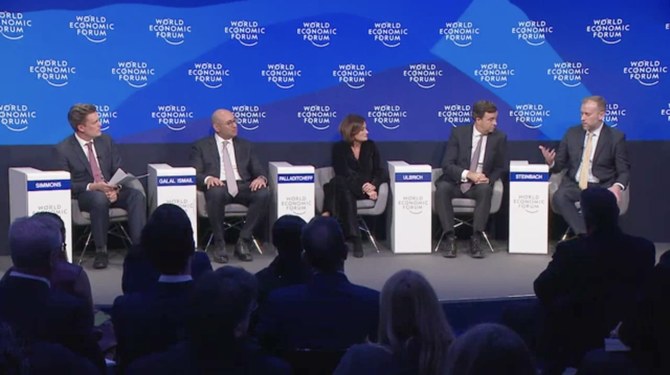DAVOS: The World Economic Forum in Davos brought together global leaders and industry experts to discuss the current state of the world, with a focus on real estate and global economic trends.
Christian Ulbrich, global chief executive officer and president of JLL, praised the ongoing development in the Middle East’s real estate sector with large-scale projects underway across the region.
“The Middle East is doing brilliantly on many fronts, not only on the luxury side but also on the production side.”
Positive outlook for Saudi Arabia
He also expressed optimism about the sector in Saudi Arabia. “I’m extremely positive for Saudi Arabia. I was attending the FII (Future Investment Initiative) a couple of weeks ago, and I was massively impressed by the progress that has been made. The country is putting businesses in a position to feel comfortable investing, and the changing workforce is notable.”
Lauding the increasing role of women in leadership positions, Ulbrich said: “It is extremely positive to see how many females are now in leadership positions and how crucial they are for the success of the country.”
Ahmed Galal Ismail, CEO of Majid Al Futtaim Holding, emphasized the growing significance of Middle Eastern markets, including the UAE and Saudi Arabia, noting their increasing economic stature and forward-looking views.
Four ‘Ds’
David Steinbach, global chief investment officer at Hines Interests Limited Partnership, discussed what he called the “four Ds.”
He said: “There’s ‘deglobalization’ occurring, ‘demographics’ are shifting, there needs to be a fair amount of ‘deleveraging’ in the market, and ‘decarbonization’ is one of the biggest investment opportunities.”
Steinbach emphasized that these trends would impact how investors allocate capital over the next decade.
Diverse nature
Nathalie Palladitcheff, president and CEO of Ivanhoe Cambridge, highlighted the diverse nature of real estate.
She remarked: “There is no such thing as real estate. In fact, there are as many real estate sectors, asset classes, and regions as we have on this panel and around the world.”
Palladitcheff urged a broader perspective, stating: “Real estate is not only offices; it’s a tangible asset class with its own operating model, requiring specific expertise.”
Role of AI
The CEO of Majid Al Futtaim Holding addressed the challenges in real estate financing. Ismail noted: “The challenge is not with the asset; it’s with the financing.”
He expressed concerns about the industry becoming complacent due to a benign monetary environment, leading to lowered underwriting standards.
Steinbach stressed the importance of considering long-term timeframes for real estate investments. He commented: “For an investor in the real estate asset class, it is important to remember timeframes because business plans are typically at least five to ten years.”
Steinbach also highlighted the growing influence of AI in the real estate sector, saying: “AI is starting to work its way in, and there’s a strategic and tactical element to that.”
Echoing similar sentiment, Ulbrich stated: “AI is probably the first industrial revolution which is going to impact the white collars, and these are our tenants.”
Transition from art to science
Steinbach reflected on the evolution of real estate analysis, noting: “Thirty years ago, we didn’t actually know what a vacancy rate was in a market or building. It was an art. Now, through works like JLL and others, it has become a science with actual data.”
The World Economic Forum in Davos provided a platform for these diverse perspectives, shedding light on the multifaceted nature of global real estate and the dynamic trends shaping the industry.
























